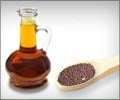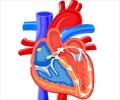Researchers have conducted a study to test how the heart rate of patients suffering from severe septic shock and high risk of death is affected by short-acting beta-blocker esmolol.

The randomized phase 2 study was conducted in a university hospital intensive care unit (ICU) between November 2010 and July 2012. It recruited patients in septic shock with a heart rate of 95/min or higher requiring high-dose norepinephrine to maintain an average arterial pressure of 65 mm Hg or higher. The researchers randomly assigned 77 patients to receive a continuous infusion of esmolol to maintain heart rate between 80 beats per minute (BPM) and 94 BPM for the duration of their ICU stay and 77 patients to standard treatment. The primary outcome was a reduction in heart rate below the predefined threshold of 95 BPM and maintain a heart rate between 80 and 94 BPM over a 96-hour period.
The researchers found that the target range for heart rate was achieved in all patients in the esmolol group, which was significantly lower throughout the intervention period than what was achieved in the control group. In addition, the esmolol group had a 28-day mortality rate of 49.4 percent vs. 80.5 percent in the control group. Overall survival was higher in the esmolol group.
There was no clinically relevant differences between groups in other investigated cardiopulmonary variables nor in rescue therapy requirements.
"Further investigation of the effects of esmolol on clinical outcomes is warranted," the authors write.
Source-Newswise















